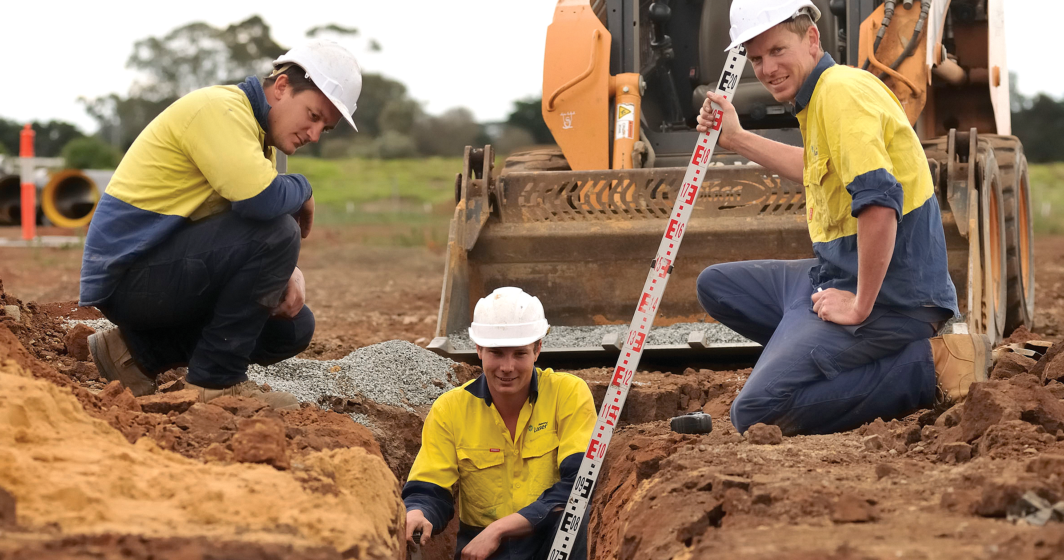Following the Federal election, eyes will now turn to the Victorian election in November. To ensure the voice of the industry is heard, Master Plumbers has developed a policy statement on the increasing need to protect our public health, economic prosperity and energy future.
Millions of Victorians are set to cast their votes in the State election scheduled for 28 November. So, what does our industry need to thrive in the next four years?

Master Plumbers has set out a comprehensive policy statement on what issues matter most to Master Plumbers and its members, and why.
CEO Peter Daly says the statement seeks to give stakeholders, policy makers and legislators an insight into how the plumbing industry underpins the key areas of economic, health, community and environmental policies.
“Plumbing often takes a back seat in policy-makers minds and yet it is a catalytic function in terms of good public health and a strong construction sector, and a thriving economy,” Peter says.
The statement asks and answers the questions:
- What is holding us back from being the best industry we can be?
- What needs to happen to reduce or remove those limiting factors?
Why is plumbing so important?
A well-functioning plumbing industry is vital to Victoria - now more than at any time in Victoria’s history.
“The Victorian economy is experiencing a series of unprecedented shocks and impacts relating to the COVID pandemic and associated restrictions,” Peter says.
In the 21 months to November 2021, the Victorian economy was shut down for a world record of 262 days.
There is significant demand being pent up in the economy, which, we expect, will drive a strong bounce back in construction and related economic activity as we head into a recovery period this year.
“Plumbing skills are going to be key to the economic recovery and will be in increasingly high demand,” Peter says.
The Victorian economy is also about to embark on one of the most ambitious structural adjustment projects ever undertaken in Australia. Victoria has set ambitious targets to reduce its greenhouse gas emissions by 28 to 33 per cent by 2025 and 45 to 50 per cent by 2030. More than 15 per cent of Victoria’s carbon emissions come from natural gas, which is extensively used in Victoria for cooking, hot water and heating.
To achieve its targets the government has made a policy decision to transition away from natural gas. This is a big challenge as the Victorian economy is extremely gas reliant including for our current power generation. There are over two million domestic gas connections in Victoria and hundreds more commercial and industrial users.
“The scale of the planned transition is enormous, and it will be plumbers and gasfitters who will be the key to making it happen successfully,” Peter says.
Plumbing is a key mitigator of community risk.
“Well-functioning and effective plumbing systems are the community’s first, and often only, line of defence against a range of hazards, toxins, substances, diseases, disasters and other risks,” Peter says.
“Professionally installed and maintained systems keep the public safe from a range of diseases, such as legionella, and toxic and volatile substances like gas and carbon monoxide.”
The role of ventilation in the transmission or containment of COVID is in the spotlight, providing an all-too real example of the extent the community relies on the skills of plumbers and related trades to keep us safe. As we move to retain and re-use wastewater onsite and we increase the potential risk of cross contamination, the plumbers’ role becomes even more vital.
Plumbing is an enabler of growth, and the primary catalyst for new energy adaptation. The community cannot be healthy and thrive without safe water, sanitation and ventilation. The building industry cannot exist without plumbing, nor can the Victorian economy progress through to a period of post-COVID recovery. The community cannot embrace, adapt to and maximise the opportunities from the ‘new energy’ economy (hydrogen) without the plumbing industry, and the skills of all the people who comprise it.
What is holding us back?
The plumbing industry in Victoria is not well-functioning. Persistent regulatory challenges plague the sector. Insurance, which is mandatory in Victoria, is proving more expensive and more difficult to obtain than it ever has been before.
Victoria is unique in the way it conducts its regulatory oversight. The Victorian definition of ‘regulated work’ encompasses a broader range of plumbing activities than any other jurisdiction. Combined with our unique self-certification scheme, this requires the Victorian regulator to work with industry to successfully roll out nationally developed regulations, such as the National Construction Code. At times this may mean that we seek a state-based outcome where it is relevant to our compliance regime.
The economic crisis spurred on by the coronavirus pandemic has caused uncertainty for the industry’s future. Australia is moving into unknown economic territory for many businesses, with inflation hitting highs not seen for decades. Coupled with continued uncertainty in supply chains this is resulting in unprecedented cost increases in everything from PE pipes to quarry products.
To date, the industry has proven resilient, but cracks are emerging as businesses struggle to tackle all of these challenges. All levels of government must play a stronger leadership role by recognising these cost pressures on business and structuring public contracts to enable a more equitable share of these risks.
If Victoria is to emerge from this crisis successfully, a strong building, civil and construction industry, of which plumbing is a core element, is critical. Plumbing skills are going to be key to our economic recovery
The risks
We are strong but for how long? More needs to be done to ensure consumers and practitioners are better protected, innovation thrives and drives industry and economic growth, and skills and training of current and future practitioners is high-quality and accessible to all.
In short, via industry research, surveys and interviews, Master Plumbers has identified the risks. As an industry, here is how things are tracking:
- Public health and practitioner safety is good; it should be better.
- The regulatory framework is fine, but not as effective as it could be.
- The compulsory insurance system is working but is under enormous pressure.
- Audit rates are too low.
- Responsibility and risk allocation settings are misaligned.
- Uncertainty and insurance are putting pressure on operational sustainability.
- The integrity of the trade is under continuous challenge.
- Consumers and practitioners could be better protected.
- Industry is equipped to be a new energy and climate change adaptation enabler.
- The industry is training current and future practitioners to be future ready.
- The industry requires more people to choose plumbing; we need great diversity.
The full statement, in some detail, describes the issues Master Plumbers have identified as being important, even business critical.
“These issues have been identified, discussed and evaluated over several years and through a range of processes,” Peter says. “The issues and their effect on our members and our industry are outlined in the document, and, most importantly, suggested treatment plans for the identified issues are proposed.”
Read the full report at www.plumber.com.au/2022election
Share this Article






